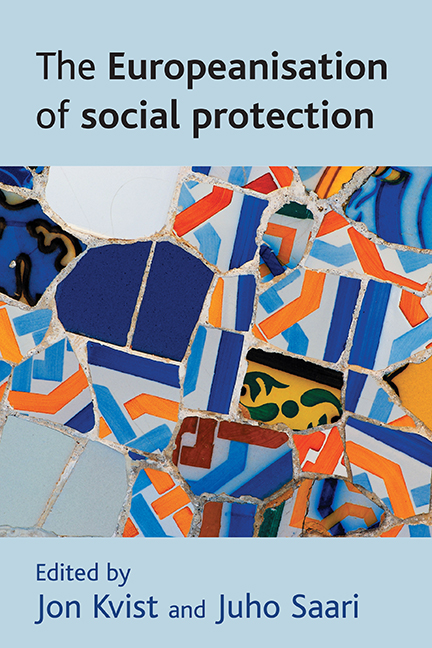Book contents
- Frontmatter
- Contents
- List of tables and figures
- Foreword: The European Union’s evolving social policy and national models – seeking a new balance
- Acknowledgements
- List of abbreviations
- List of contributors
- one European Union developments and national social protection
- two Germany: moving towards Europe but putting national autonomy first
- three The United Kingdom: more an economic than a social European
- four France: defending our model
- five Italy: between indifference, exploitation and the construction of a national interest
- six Poland: redefining social policies
- seven Spain: starting from periphery, becoming centre
- eight The Czech Republic: tradition compatible with modernisation?
- nine Finland: towards more proactive policies
- ten The Netherlands: social and economic normalisation in an era of European Union controversy
- eleven Denmark: from foot dragging to pace setting in European Union social policy
- twelve Greece: the quest for national welfare expansion through more social Europe
- thirteen The Europeanisation of social protection: domestic impacts and national responses
- fourteen Seeking a new balance
- References
- Index
five - Italy: between indifference, exploitation and the construction of a national interest
Published online by Cambridge University Press: 15 September 2022
- Frontmatter
- Contents
- List of tables and figures
- Foreword: The European Union’s evolving social policy and national models – seeking a new balance
- Acknowledgements
- List of abbreviations
- List of contributors
- one European Union developments and national social protection
- two Germany: moving towards Europe but putting national autonomy first
- three The United Kingdom: more an economic than a social European
- four France: defending our model
- five Italy: between indifference, exploitation and the construction of a national interest
- six Poland: redefining social policies
- seven Spain: starting from periphery, becoming centre
- eight The Czech Republic: tradition compatible with modernisation?
- nine Finland: towards more proactive policies
- ten The Netherlands: social and economic normalisation in an era of European Union controversy
- eleven Denmark: from foot dragging to pace setting in European Union social policy
- twelve Greece: the quest for national welfare expansion through more social Europe
- thirteen The Europeanisation of social protection: domestic impacts and national responses
- fourteen Seeking a new balance
- References
- Index
Summary
Italy is generally considered a warm supporter of the European integration process. While the positive attitude of Italians towards the European Union (EU) has somewhat declined in recent years, it remains high enough to allow justifying and legitimising domestic strategies of state modernisation through pointing at EU membership imperatives. Paradigmatic in this regard is the impressive sequence of (mainly social policy) reforms in the 1990s, allowing Italy to enter the Economic and Monetary Union (EMU) through the main door. Still, Italy's implementation record is poor, and its participation in day-to-day EU-level decision making is generally haphazard. Social policy is no exception.
This chapter shows how Italy's official response to various recent social policy initiatives has generally been inattentive, left to the voluntarism of civil servants commanding few organisational resources and lacking political guidelines – and legitimacy – on which to orient their actions. In some cases, however, Italy has responded to social policy initiatives, either criticising them or trying to influence their development at EU level. This response has occurred when the envisaged initiatives were at odds with the government's domestic policy agenda, or when they could be exploited precisely to promote and legitimise this agenda. Whether this type of response implies a path-shift in Italy's participation in the EU social policy process, or merely signals a cynical attitude on the part of the government that ruled Italy for the first half of the current decade, is an interesting question that will be covered in the conclusions to this chapter.
The European social model versus the Italian model
A founding Member State of the European Community, Italy has always been considered (and has considered itself) as one of the most europhile Member States, with a generally positive attitude towards first the European Community and then the EU. Between the mid-1970s and the late 1990s, a positive evaluation of Italy's membership in the European Community/EU ranged between 60% and 80%, a higher figure than the European average (about 60%). However, while still a majority, this consensus has since been declining.
- Type
- Chapter
- Information
- The Europeanisation of Social Protection , pp. 77 - 98Publisher: Bristol University PressPrint publication year: 2007

